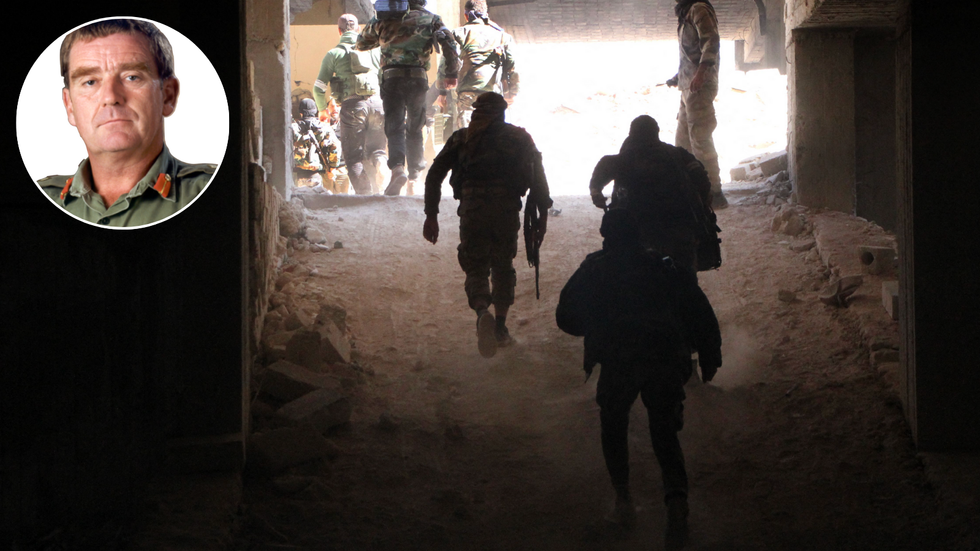Assad’s rotten regime is over, but I know the danger that’s lurking in the shadows – Major General Tim Cross
Watching the Assad’s regime prisoners being released, and people making off with just about anything that could be moved as they rampaged through the rooms and grounds of Assads New Shaab Palace, brought back memories of the same thing happening during my time in Baghdad in 2003.
Pictures and statues defaced and beaten with the soles of people’s shoes – a sign of disrespect if not outright hatred – alongside celebrations accompanied by indiscriminate small arms fire were and are all a part of the exuberance of freedom.
And understandably so. For the moment, there is great optimism in Syria that a new democratic era is dawning. There was that too in Iraq. But it never materialised.
Under pressure for many years, like the collapse of many other brutal dictatorships around the world, the end in Syria came quickly. The shell surrounding the rotten regime cracked and then splintered in less than a fortnight as the ‘rebels’ advanced from all points of the compass.
Some outcomes are relatively clear – Israel for one is delighted; Russia and Shia Iran despondent – with potentially serious consequences for both. Russia has lost their most important Arab client, and may well lose its naval and air bases at Tartus and Hmeimim.
Vladimir Putin’s foothold on the eastern Mediterranean is in trouble, and he may have to look to reinforce his influence in Libya to maintain one. And Iran has lost its ability to filter support to Hezbollah and Hamas.

The key player is Hayat Tahrir al-Sham (HTS), the Islamist rebel faction that mounted the offensive which led to Assad’s downfall. An affiliate of al-Qaeda until severing ties in 2017, it will have a very influential role in shaping the future, but it’s an unknown quantity. Proscribed as a terrorist organisation in the West, its leader, Abu Mohammed al-Jolani, served five years in various US detention facilities in Iraq, including at Abu Ghraib, and had ties to both al-Qaeda and ISIS. The US still has a $10million (£7million) bounty on his head.
That said, as his forces swept southwards from Idlib Province near the Turkish border, Jolani reached out internally to the Alawite and Christian minorities, and externally to Iran and Israel. He has been at pains to stress that the transition would be well managed and that no ethnic reprisals would be taken. And, on the face of it, his officials are working with members of the Assad regime to bring about an orderly handover of power.
So, optimism may prove to be well-founded. But there are a number of other rebel factions who will want their say. The Syrian Democratic Forces are a US-backed, Kurdish-led armed group. I saw how the Kurds operated in northern Iraq; they were – and are – impressive. They won’t want to give up their hold in their area easily. Then there are Turkish-backed factions; and there is Isis, who may have been badly weakened over the last few years, but who still control some territory.
These and other factions will no doubt want a say and a place in the new Syria. So, whilst the 13-year rebellion against Assad may be over, there is certainly a danger that civil war could reignite.

